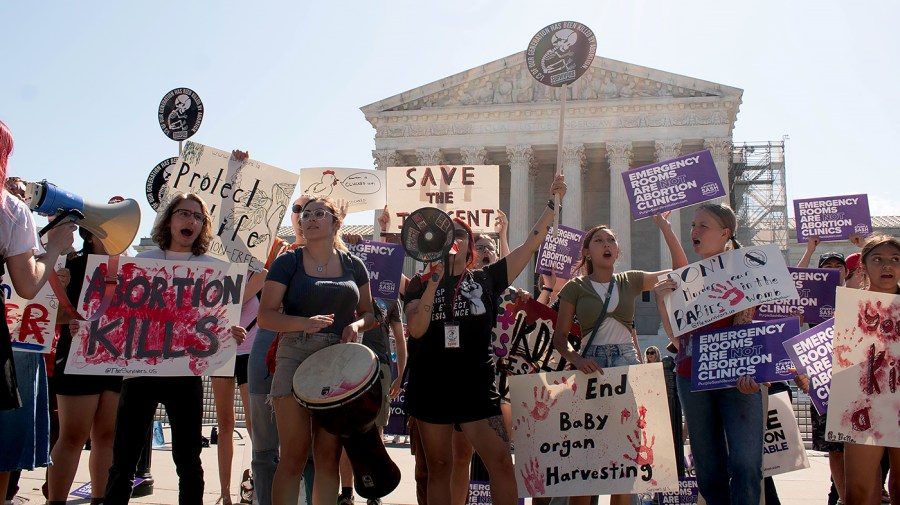The Supreme Court decided not to hear arguments in a case involving Texas that could have provided an answer about whether a state abortion ban conflicts with a federal emergency care law.
The decision is a significant victory for Texas Attorney General Ken Paxton (R) and comes just three months after the court dismissed a similar case involving Idaho, a move that was criticized as a preelection punt that offered no clarity on the issue.
Dismissing the Idaho case did not resolve the underlying legal questions, so the decision not to hear arguments in the Texas case was unexpected.
The dismissal came under fire not just from abortion-rights activists and physicians but also Justices Samuel Alito and Ketanji Brown Jackson.
Both argued, for different reasons, that the court should have ruled on the merits.
The Texas case centers on the Emergency Medical Treatment and Labor Act (EMTALA), which requires federally funded hospitals to provide stabilizing care to emergency room patients no matter their ability to pay.
The Biden administration invoked EMTALA in the wake of the Supreme Court decision that overturned Roe v. Wade. The administration said state laws or mandates that employ a more restrictive definition of an emergency medical condition are preempted by the federal statute.
Texas sued the administration shortly after the guidance was issued, arguing the law was improperly applied, and the administration did not follow the appropriate rulemaking process.
A lower court ruled in favor of Texas, and the U.S. Court of Appeals for the 5th Circuit agreed.
The court said the administration’s guidance was improperly issued. The panel held that EMTALA does not require any particular care and never requires pregnancy termination. The court, considered the most conservative in the country, ruled EMTALA does not govern the practice of medicine.
Further, the court said there is no direct conflict between EMTALA and the Texas abortion law. Texas bans abortions in almost all circumstances, but there are exceptions for when there is a life-threatening condition that places the mother at risk of death or “substantial impairment of a major bodily function.”
In asking the Supreme Court not to hear arguments, Texas insisted the case was merely about how the administration issued the EMTALA guidance, rather than the substance of the law itself.
In the earlier case, the Biden administration sued Idaho over its abortion ban, arguing it conflicted with EMTALA. But in this case, Texas sued the Department of Health and Human Services.
“This is not the case the federal government says it is,” the state said in its brief. “The United States has erased two years of litigation history and transformed this case from one about whether the executive branch complied with administrative-law requirements to one about whether the State of Texas has complied with constitutional demands.”

